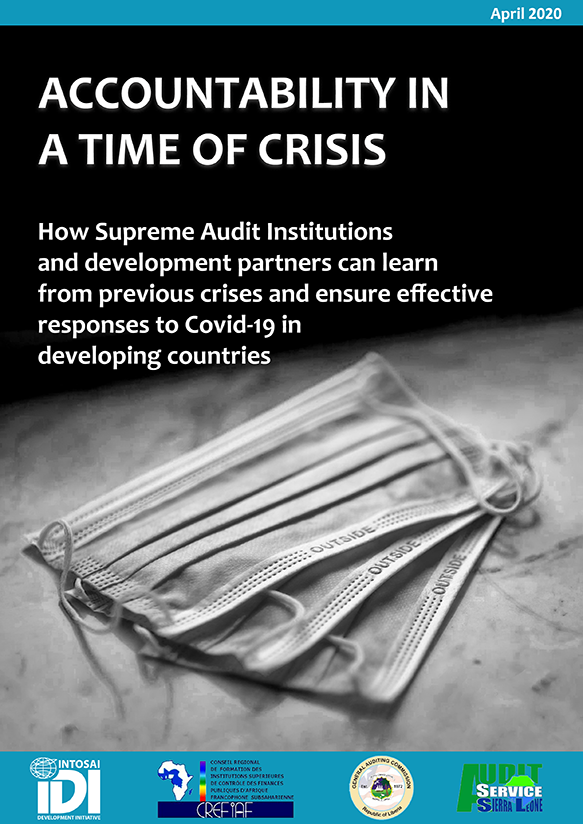About IDI
Our Cross-Cutting Priorities
Our Results
Meet the IDI Board
IDI's Board is composed of ten members from different supreme audit institutions. Get to know them better in our "Meet the Board" series.

Audits of previous crises, such as the Ebola epidemic in west Africa, provide key lessons learned for handling the coronavirus crisis. The paper presents how Supreme Audit Institutions (SAIs) can play an important role during the current crisis and what safeguards development partners can apply when funding coronavirus measures.
The Covid-19 crisis is global and has massive impact on all countries in areas such as public health, employment, economic growth and social protection. The crisis requires urgent actions by governments, and it can sometimes be difficult to balance this carefully with accountability, transparency and integrity.
We know from previous pandemics and disasters that emergency situations can lead to basic control systems being suspended or bypassed, combined with weakening of accountability systems and oversight. This can cause increased levels of waste, mismanagement and corruption at a time when government resources are under pressure.
How the SAI can add value during the crisis
As a respected oversight institution, the SAI can play a key role in the different stages of a crisis like Covid-19. They can provide advice on critical rules and regulations, and can conduct real-time audits on procurements and whether funds are being used for the right purposes. This can have a deterrent effect and contribute to safeguarding government and donor funds.
SAIs can also audit the implementation of new regulations and programmes, such as for infection control or economic stimulus, and thereby contribute to effective government actions.
This can help to identify potential cases of fraud, waste, and abuse, counter misinformation, and build greater trust between citizens and the government during a national emergency.
In the aftermath of a crisis, the SAI can provide assurance on the use of funds and assess the economy, efficiency and effectiveness of the national responses. Reports can be used both for accountability and for identifying lessons for the future.
The paper presents several detailed approaches for how SAIs can contribute to the current crisis response:
Development partners can respond through reinforcing good governance and carefully selecting short-term safeguards
The immediate response by development partners to Covid-19 is likely to involve increased contributions to health, social security, humanitarian aid and economic sectors at global and national levels. While these funds will be of great help, each sector and funding channel also brings with it different risks related to effective use of funds.
What measures can development partners apply to ensure a rapid response without compromising on accountability? By reinforcing good governance, including effective and consistent monitoring by oversight institutions such as SAIs, development partners can help to ensure that their resources are used as effectively as possible and have the greatest benefit to the people most effected by this crisis.
The paper presents specific recommendations on how development partners can promote good governance in a crisis situation, including how to:
The paper has been developed in a partnership comprising:
Issued: 21 April 2020